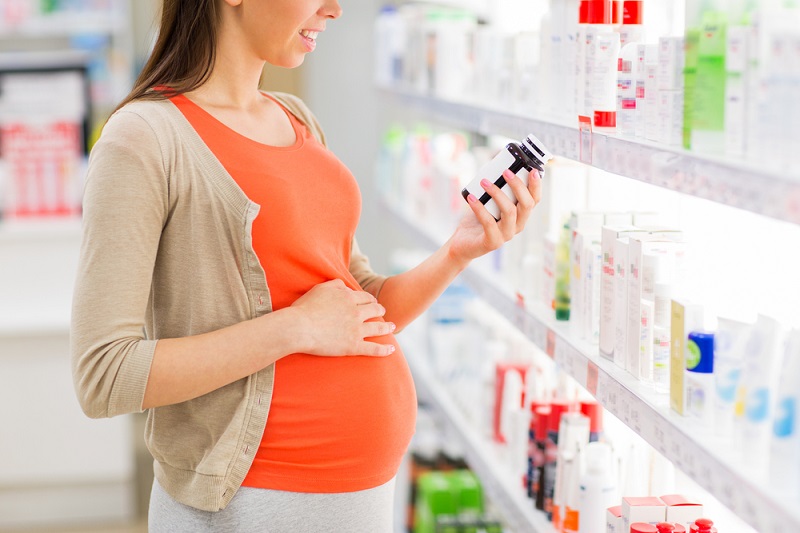Vitamin D May Not Protect Against These Dangerous Pregnancy Complications

Proper nutrition during pregnancy is important for mother and baby, but there's been a debate about exactly how much vitamin D pregnant women need.
Now, a new study suggests that vitamin D may not protect against two potentially dangerous pregnancy-induced conditions: preeclampsia, a condition that involves high blood pressure and high levels of protein in the urine, and gestational hypertension, which is pregnancy-induced high blood pressure that does not involve high levels of protein in the urine.
The findings support recent guidelines from the World Health Organization that say there isn't enough evidence to recommend vitamin D supplements in general to pregnant women in order to prevent pregnancy complications. [Are You Pregnant? 10 Early Signs of Pregnancy]
Still, the researchers said more studies are needed to confirm their findings and determine whether levels of vitamin D play a role in causing or protecting against high blood pressure in pregnancy.
Currently, the American College of Obstetricians and Gynecologists (ACOG)recommends that all women, including pregnant women, get 600 international units (IU) of vitamin D per day.
Vitamin D in pregnancy
Some studies suggest that low vitamin D levels in pregnancy may raise the risk of preeclampsia, a condition in which pregnant women develop high blood pressure and have high levels of protein in their urine — a sign of kidney problems. Preeclampsia can lead to serious pregnancy complications, including reduced growth of the fetus and preterm birth, according to the Mayo Clinic.
However, other factors that previous studies didn't always consider, such as aspects other than vitamin D in a woman's diet, may explain the link between low vitamin D levels and preeclampsia, the researchers said. In addition, studies in which pregnant women have been given vitamin D supplements to see if it prevents preeclampsia have had inconclusive results, so it's unclear whether low vitamin D levels cause preeclampsia.
Sign up for the Live Science daily newsletter now
Get the world’s most fascinating discoveries delivered straight to your inbox.
In the new study, the researchers investigated whether low vitamin D levels might be a cause of preeclampsia or gestational hypertension.
The researchers used a different approach than previous studies did. They looked at genetic markers known to be related to people's vitamin D levels and examined whether those genetic markers were also linked with preeclampsia and gestational hypertension. If the researchers found a link using this different (genetic) approach, it would provide more evidence that low vitamin D levels do indeed play a role in causing high blood pressure in pregnancy.
The researchers analyzed information from more than 7,000 women in two large European studies. About 750 of these women had gestational hypertension, and 135 had preeclampsia.
The researchers didn't find strong evidence of a direct, or causal, link between vitamin D levels and the development of preeclampsia or gestational hypertension.
Still, the researchers said their study might not have been large enough to detect a small link between vitamin D and either of these conditions. Therefore, they called for more studies to confirm their results, to "help finally establish whether vitamin D status has a role in pregnancy-related hypertensive disorders," the researchers wrote in the June 20 issue of the journal The BMJ.
ACOG currently doesn't recommend vitamin D supplements for pregnant women beyond what's included in a prenatal vitamin (which is usually 400 IU per tablet), unless a woman has a vitamin D deficiency. ACOG also says that, in addition to a prenatal vitamin, a well-rounded diet should supply all of the other vitamins and minerals that a woman needs during pregnancy. Good sources of vitamin D include fortified milk and fatty fish, ACOG says. The body also makes vitamin D when exposed to sunlight.
If a pregnant woman is found to have a vitamin D deficiency, ACOG recommends taking 1,000 to 2,000 IU of vitamin D per day.
Original article on Live Science.

Rachael is a Live Science contributor, and was a former channel editor and senior writer for Live Science between 2010 and 2022. She has a master's degree in journalism from New York University's Science, Health and Environmental Reporting Program. She also holds a B.S. in molecular biology and an M.S. in biology from the University of California, San Diego. Her work has appeared in Scienceline, The Washington Post and Scientific American.
Is getting an IUD painful?
'Useless' female organ discovered over a century ago may actually support ovaries, study finds









